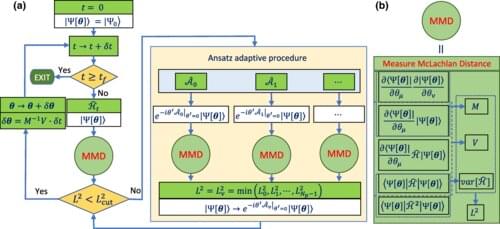A group of scientists at the U.S. Department of Energy’s Ames Laboratory has developed computational quantum algorithms that are capable of efficient and highly accurate simulations of static and dynamic properties of quantum systems. The algorithms are valuable tools to gain greater insight into the physics and chemistry of complex materials, and they are specifically designed to work on existing and near-future quantum computers.
Scientist Yong-Xin Yao and his research partners at Ames Lab use the power of advanced computers to speed discovery in condensed matter physics, modeling incredibly complex quantum mechanics and how they change over ultra-fast timescales. Current high performance computers can model the properties of very simple, small quantum systems, but larger or more complex systems rapidly expand the number of calculations a computer must perform to arrive at an accurate model, slowing the pace not only of computation, but also discovery.
“This is a real challenge given the current early-stage of existing quantum computing capabilities,” said Yao, “but it is also a very promising opportunity, since these calculations overwhelm classical computer systems, or take far too long to provide timely answers.”
